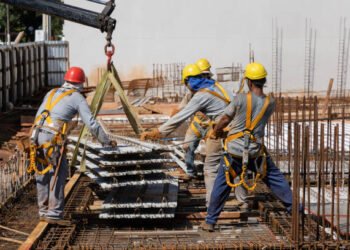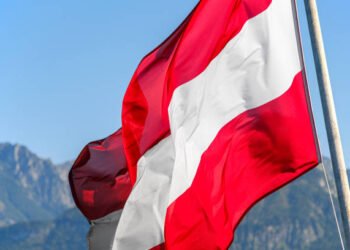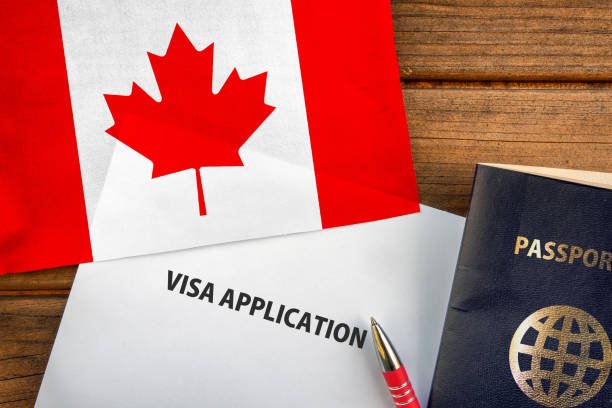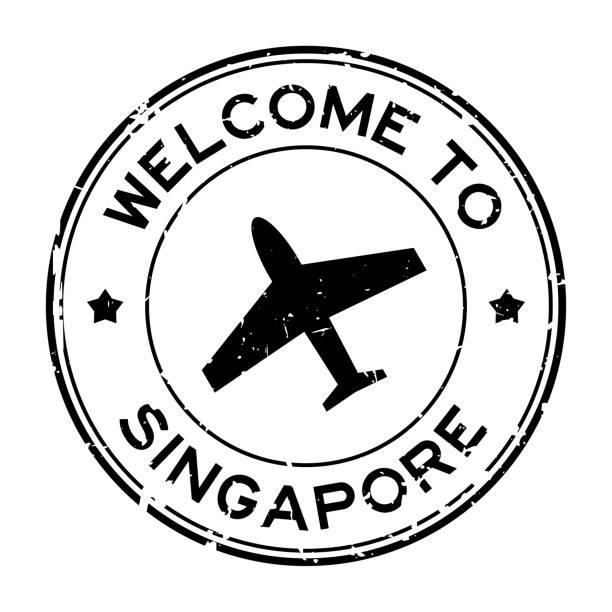Advertisement
Are you an experienced housekeeping professional dreaming of a better life in Canada? Before 2025 and even beyond, Canada’s booming hospitality and healthcare industries have created a growing demand for housekeeping supervisors, and thousands of international workers are being recruited to fill these roles. If you’ve managed teams, maintained cleanliness standards, and want a future with stable income, work benefits, and even permanent residency, your skills are needed in Canada now more than ever.
Canada has become one of the world’s top destinations for skilled and semi-skilled workers, including those in hospitality. Housekeeping supervisor jobs are listed among Canada’s in-demand occupations due to chronic labor shortages in hotels, resorts, hospitals, and long-term care facilities. As the population grows and the travel sector expands, employers across provinces like British Columbia, Alberta, Ontario, and Nova Scotia are actively hiring foreign-trained supervisors under government-backed visa programs.
Advertisement
This comprehensive guide will walk you through how to qualify for these jobs, where to apply, what documents are needed, and which immigration routes you can follow. Whether you’re in Nigeria, the Philippines, India, Kenya, or any other country, you can take actionable steps today to secure a job in Canada and start a new life. Ready to take the first step toward relocation and career growth? Walk with me in through this guide.
Why Canada Needs Housekeeping Supervisors in 2025
Growing Demand in the Hospitality & Healthcare Sectors
Canada has continued to witness a rise in the demand for hospitality and cleaning professionals, particularly in the role of housekeeping supervisors. As tourism and international travel have recovered post-pandemic, hotels and resorts across the country have ramped up recruitment to meet cleanliness and guest service standards. Simultaneously, the healthcare sector, including hospitals, clinics, and long-term care facilities has expanded, requiring structured housekeeping supervision to maintain safety and sanitation protocols. The demand has been highest in provinces with high immigration and tourism traffic, such as Ontario, British Columbia, Alberta, and Quebec.
Federal and Provincial Support for Skilled Immigration
To address labor shortages in supervisory roles, Canadian immigration programs have been adjusted to include intermediate-skilled positions such as housekeeping supervisors under various immigration streams. Employers in sectors such as hospitality, long-term care, and facility management have received support in hiring foreign workers through programs like the Temporary Foreign Worker Program (TFWP), Provincial Nominee Programs (PNPs), and regional immigration pilots.
What Housekeeping Supervisors Do in Canada
Job Responsibilities
The responsibilities of housekeeping supervisors in Canada have been clearly defined and enforced across various work settings. These include assigning housekeeping tasks to staff, inspecting assigned areas to ensure cleanliness standards are met, maintaining cleaning supplies inventory, handling staffing schedules, and reporting maintenance issues to the relevant department. Leadership and quality control have been key focuses of the role.
Typical Work Settings
Housekeeping supervisors have been employed in several sectors across Canada. Hotels and resorts have required supervisors to uphold guest satisfaction and brand cleanliness standards. Hospitals and long-term care homes have relied on supervisors to ensure hygiene standards are met in patient areas. Universities, government buildings, shopping malls, and commercial complexes have also maintained housekeeping departments led by supervisors.
Qualifications & Skills Required
Education and Work Experience
A secondary school diploma has typically been the minimum educational requirement for this position. Candidates with post-secondary education in hospitality or management have been preferred but not strictly required. Most Canadian employers have prioritized candidates with at least 1 to 3 years of relevant experience in housekeeping, with some experience in a supervisory or leadership role.
Language and Soft Skills
Proficiency in English or French has been required depending on the region of employment. For immigration purposes, a minimum of Canadian Language Benchmark (CLB) Level 4 or higher has often been requested. In addition to communication skills, successful candidates have demonstrated excellent time management, leadership abilities, organization, and an eye for detail.
Certification (Optional but Helpful)
While not mandatory, certifications have strengthened a candidate’s profile. These include WHMIS (Workplace Hazardous Materials Information System) certification, first-aid training, and certificates in hospitality or cleaning services supervision. These have increased employability and safety awareness.

How to Find and Apply for Housekeeping Supervisor Jobs in Canada
Where to Search for Jobs
Job openings have been posted across several Canadian platforms. Government portals such as Job Bank Canada have consistently listed LMIA-approved jobs. Other trusted platforms have included Indeed.ca, Workopolis, Monster.ca, and specialized hotel industry sites like HCareers. Employers such as Fairmont Hotels, Marriott International, and regional hospital authorities have recruited directly from their websites.
How to Tailor Your Resume & Cover Letter
Resumes have been expected to follow the Canadian format, highlighting job-specific experience, clear role responsibilities, and measurable achievements. Emphasis has been placed on supervisory skills, problem-solving in the workplace, and the ability to manage cleaning teams. Cover letters have reflected a tailored approach, mentioning the company, the specific job posting, and the candidate’s alignment with the role.
Interview Preparation Tips
Candidates have been advised to practice answers around scenarios such as resolving team conflicts, handling guest complaints, ensuring health and safety protocols, and organizing large-scale cleaning operations. Experience with digital tools (like hotel management software) or maintenance checklists has also been viewed as a strength.
Pathways to Legally Relocate to Canada as a Housekeeping Supervisor
Through Temporary Foreign Worker Program (TFWP)
This route has required an employer in Canada to obtain a positive Labour Market Impact Assessment (LMIA), confirming that no Canadian worker is available to fill the role. Once an LMIA is issued, the foreign applicant may apply for a work permit. This pathway has been popular in the hospitality sector and has allowed for initial work in Canada ranging from 1 to 2 years, often renewable.
Provincial Nominee Program (PNP)
Certain PNP streams have targeted intermediate-skilled roles, including housekeeping supervisors. Provinces such as Manitoba, Alberta, and British Columbia have maintained dedicated immigration streams for in-demand occupations. A job offer and employer support have been prerequisites in most cases. Once nominated, a candidate has been able to apply for permanent residence (PR).
Rural and Northern Immigration Pilot (RNIP)
Communities participating in RNIP have recruited skilled and semi-skilled workers, including housekeeping supervisors. These communities have offered job opportunities in smaller towns and cities where labor shortages are common. Relocation support, employer sponsorship, and fast-tracked PR opportunities have made RNIP a promising option.
Atlantic Immigration Program (AIP)
The AIP has targeted foreign workers for jobs in New Brunswick, Nova Scotia, Prince Edward Island, and Newfoundland and Labrador. Employers designated under this program have not required LMIA, making the process quicker. Housekeeping supervisors have qualified under intermediate-skilled job classifications (NOC TEER 2/3).
Documents and Steps to Relocate
Essential Documents
Candidates have been expected to provide the following:
- Valid international passport
- Academic certificates and transcripts
- Reference letters from previous employers
- Canadian-format resume
- Job offer letter (with LMIA if applicable)
- Language test results (IELTS General or CELPIP)
- Police clearance certificate
- Medical examination report
Visa Application Process
Once a job offer and supporting documents are secured, a work permit application has been submitted online through the IRCC portal. Biometrics collection, medical tests, and document verification have followed. Upon approval, a work visa has been issued, and the candidate has been authorized to enter and begin work in Canada.
Life in Canada as a Housekeeping Supervisor
Salary and Work Conditions
The average salary for housekeeping supervisors in Canada has ranged between CAD $40,000 and $55,000 annually, depending on the province and work setting. Compensation packages in remote or northern areas have often included free housing, food allowances, and transportation. Overtime pay, night shifts, and public holiday premiums have been provided in many sectors.
Opportunities for Career Growth
Housekeeping supervisors have had the chance to rise to management roles such as executive housekeeper, facility operations manager, or hospitality team lead. Continuous professional development, employer-sponsored courses, and certification upgrades have been encouraged.
Path to Permanent Residency
After one year of Canadian work experience, candidates have become eligible to apply for permanent residency through the Canadian Experience Class (CEC). PNP nominees have transitioned directly into the PR process after receiving provincial endorsement. PR has opened doors to sponsor family members and access additional benefits.

Frequently Asked Questions (FAQs)
- Can I apply for this job without a university degree?
Yes. A high school diploma and relevant experience have been sufficient in most cases. - Is an LMIA always required?
Not always. PNPs, AIP, and RNIP pathways have sometimes waived LMIA requirements. - Can I move with my family?
Yes. Spouses can apply for open work permits and children for study permits when accompanying the primary applicant. - Are French-speaking regions open to English speakers?
Yes, although roles in Quebec or New Brunswick may require French proficiency. - How long does the relocation process take?
Depending on the program and country of residence, it may take 3 to 9 months.
Final Tips and Next Steps
Apply Consistently and Follow Up
It has been recommended to apply to 10–15 openings per week. Following up on submitted applications and attending scheduled interviews promptly has increased the chances of success.
Stay Informed and Avoid Scams
Only trusted platforms and licensed recruiters should be used for job searches. Legitimate employers have never requested upfront fees for jobs or visa processing.
Be Patient and Stay Committed
Relocating to Canada as a housekeeping supervisor has been possible, but it has required persistence, documentation accuracy, and proactive communication with employers and immigration bodies.


















